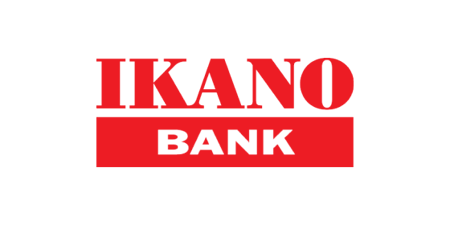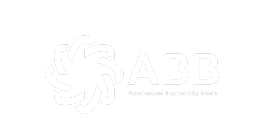
Client:Ikano Bank
Industry:Banking and Financial Services
Region:Europe
Putting people at the center of Ikano Bank with automation

100
processes automated in 2021
33,500
hours saved in one year, exceeding 2020 KPIs by 300%
100,000
hours saved for 2021
8
countries where robots were deployed
Client Overview
Owned by the family that founded IKEA and headquartered in Malmö, Sweden, Ikano Bank delivers finance on fair terms to businesses and individuals across Sweden, Denmark, Finland, Norway, the UK, Poland, Germany, and Austria. It prides itself on bringing value to its customers through the strength of working together and recently the team has welcomed a new type of colleague to this mission — software robots.
In a sector full of paperwork and governance, Ikano Bank has enlisted the help of robotic process automation (RPA) to reduce administrative pressures and best serve its 2 million customers and 1,100 employees.
With a vision to create possibilities for better living and to simplify the everyday life of the many people, its customers and employees naturally sit at the very heart of Ikano Bank. Yet behind the curtains, huge swathes of paperwork and manual processes can dominate the day-to-day of the banking world. To keep customers in focus, Ikano Bank has deployed the helping hand of automation to assist in carrying the administrative load, improving the customer and employee experience alike.

When I began my career at Ikano Bank, stepping off the train in Älmhult, a small city tucked away in Swedish woodland, a pan-European automation journey wasn’t on my radar. Now, since 2019 we have automated over 170 processes and saved over one hundred thousand hours of work. What we are most proud of, however, is the real change we have brought to our customers and colleagues.
Viktor Törner • Manager, Automation Office at Ikano Bank
Consolidating automation
Automation was being explored at Ikano Bank, primarily by IT and finance, for a year and a half before efforts were consolidated into one program. Islands of automation had emerged out of curiosity across several departments but a lack of coherence was holding success back.

A trip to the office coffee machine in 2019 kick-started Ikano Bank’s enterprise-wide approach.
Our center of excellence was born out of Henrik Eklund, COO at the time, bumping into my manager at that time around the office. Henrik had prior experience with the technology and in casual conversation asked my manager if we wanted to explore RPA further and the rest is history.
Viktor Törner • Manager, Automation Office at Ikano Bank
Due to the nature of the industry, procedure and governance is key to Ikano Bank’s operations. As a result, the disjointed department efforts were unsustainable and it was clear to the team a centre of excellence was required to house the creation, deployment and maintenance of robots. Consequently the Automation Office was established to marry up existing automation efforts and improve output. The first act of consolidation taken by the Automation Office was to choose one single vendor. After exploring potential use cases and utilizing Ikano Bank’s sister company IKEA’s experience, the team decided on the UiPath platform. The next step was to prove that automation works.
Employees were getting tired of the 18 months of hearing about how automation will transform their working lives with no real change having been delivered during that time. To address this crisis of confidence we had to work fast.
Viktor Törner • Manager, Automation Office at Ikano Bank
With existing experience in process improvement and two talented developers, the Automation Office quickly identified 15 low-hanging fruit processes, building and deploying all the bots in just six months. A bot was built in Sweden, for example, to update name changes across key systems. At the time there was a backlog of over 30,000 records to be updated, putting these customers at risk of missing communication if the core banking system wasn’t quickly corrected. A plan had been devised to hire ten employees to check records and manually update names, which was estimated to take two to three minutes per case, the equivalent of hundreds of days of work. Instead, a bot was built that caught up on the backlog in weeks.
The initial success of this bot, amongst the 14 others, proved to the Automation Office that a show and tell approach could successfully reignite employee support and as a result, it subsequently aimed to have at least one automation running in every country before the end of the year.
Robots to the rescue
Amid this change came COVID-19. “The pandemic offered the opportunity for us to really help our colleagues and customers with automation. As uncertainty grew, we developed a few key automations that relieved pressures related to the pandemic,” Törner comments.
Payment deferral requests spiked significantly when COVID-19 first emerged. To assist customers more quickly and to reduce the strain on employees, the Automation Office deployed a robot that picked up the deferral form from the customer, checked their eligibility, and responded in under a minute.
While the bot has now stopped running due to lower levels of demand, the underlying process of the bot is now being used to generate leads elsewhere in the company. IKEA customers can finance purchases through Ikano Bank, but to attract as many customers as possible the application needs to be quick and easy. Rather than waiting for a customer service agent to assess eligibility, a UiPath bot picks up the application directly from an API on IKEA’s website, extracts, cross references, and reports back on the application results in under 60 seconds. As a result, the scheme has seen 50,000 new customers in the last year and a half.
Once you think of one idea, more and more keep coming. In recent months, for example, we have built bots to help our Danish branch expose existing customers to new products by extracting data from our CRM and pushing it to a broker API. We are expecting that this could lead to 30 million DKK in sales by the end of next year.
Viktor Törner • Manager, Automation Office at Ikano Bank
Embracing employee enthusiasm
Despite these successes, ensuring employee enthusiasm is maintained remains a key pillar of the Automation Office’s practice. “To best utilize automation you need access to the employees that work with the processes day in and day out, particularly in our business where many IT systems are very local,” Törner explains. Once the initial rollout had recaptured interest by the end of 2019, the team reached out to all seven branches to establish a virtual workforce of automation pilots—automation champions who sit in every country and department and act as a known point of contact for automation efforts in that business unit.

The interest was strong and Ikano Bank now has 40 automation collaborators around the company who work with the Automation Office on ideation and the definition of processes and alongside working with fellow colleagues to answer any questions or pass along feedback. The Automation Office can then build on these ideas to create, deploy and maintain robots that best serve employee needs. While as a relatively small business the Automation Office often has the chance to casually educate employees as they bump into them either around the office or virtually, formal education remains a key priority nonetheless.
UiPath’s Reboot Your Skills workshop gave us the perfect opportunity to roll out formal education beyond our automation pilots. Around 30 employees from all corners of the business signed up to the course and as a result of the success, we are now looking to roll out a three-tiered education program as part of our internal management training.
Viktor Törner • Manager, Automation Office at Ikano Bank
He continues, “A key consideration in our education program is giving a human face to automation. When we run a training course, we then offer dedicated sessions with our RPA developers where employees can ask questions and learn more about the processes. While forms can be filled out to explain the role of automation, the most important part of keeping stakeholders and employees on board is talking to them and maintaining that human touch.”
Looking forward to intelligent automation
Manual tasks and the banking sector go hand in hand. As Törner puts it, “the chances are if it’s a task a human can do on a computer, a robot will be able to help.” With an inherent reliance on documents and systems, the list of automatable processes at Ikano Bank is long. In order to reach all these processes, the Automation Office is looking to introduce additional advanced technologies into its bots as time goes on. “At the moment, around ninety percent of our automations are unattended”, Törner explains. “To deploy more attended automation and to reach processes reliant on paper-based documents, we are looking into the possibility of deploying technologies such as Document Understanding and machine learning into our bots”. Another area of interest includes AI-powered chatbots.
RPA is already having a huge impact on our customer service function, with over 40% of our bots sitting in this department, and over the next year we’d like to explore these possibilities further to even better serve our customers and reduce pressure on our customer service agents.
Viktor Törner • Manager, Automation Office at Ikano Bank
Ikano Bank’s journey has transformed quickly and shows no signs of slowing down. From setting up a center of excellence two years ago to now having automated over 150 processes in the last year and saved over one hundred thousand hours of work since its inception, Ikano Bank is ready to continue scaling and bringing automation to every corner of its operations.
Related case studies
Ready for your own case study?
Speak to our team of knowledgeable experts and learn how you can benefit from agentic automation.






